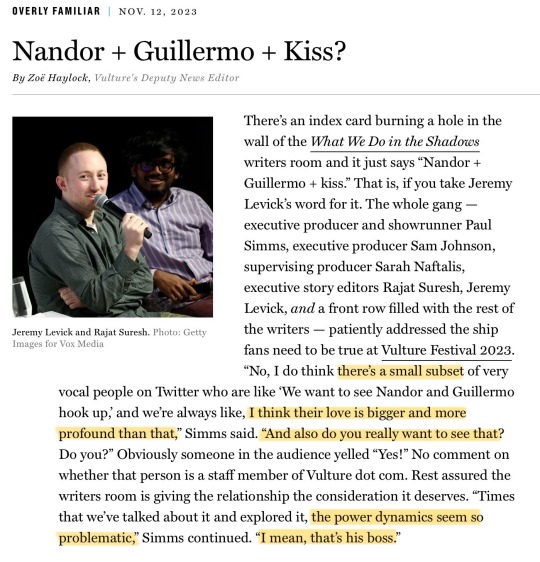#centralized power
Explore tagged Tumblr posts
Text
#Tags:AI and Automation#AI Ethics#AI Governance#AI Leadership#AI Race#Artificial Intelligence#Centralized Power#Elon Musk#Ethical AI Development#facts#Geopolitical Risks#Global Inequality#Innovation and Society#Job Displacement#life#OpenAI#Podcast#Privacy Concerns#Sam Altman#serious#SoftBank#Stargate Cluster#straight forward#Surveillance Technology#Technological Monopolies#truth#upfront#website
1 note
·
View note
Text
1957 Wang Shuyao: "Highly Centralized Power is Dangerous"
《燕园风雨铸人生》[Storms on the Peking University Campus Forged My Life] In Mao’s day writing and posting big character posters dazibao was guaranteed by the PRC Constitution. That freedom was terminated shortly after Deng Xiaoping became the top leader. Why I am not sure. Mao wanted to monitor and the intense application of pressure forge characters, extirpating bad ideas and implanting approved ones.…
#Big Brother#centralized power#China#Communist Party#dazibao#dictatorship#freedom of expression#freedom of speech#little brother#Peking University#power#PRC#Soviet Union#Stalin#village#Wang Shuyao#共产党#大字报#中国
0 notes
Text
"Around the world, farmers are retooling their land to harvest the hottest new commodity: sunlight. As the price of renewable energy technology has plummeted and water has gotten more scarce, growers are fallowing acreage and installing solar panels. Some are even growing crops beneath them, which is great for plants stressed by too many rays. Still others are letting that shaded land go wild, providing habitat for pollinators and fodder for grazing livestock.
According to a new study, this practice of agrisolar has been quite lucrative for farmers in California’s Central Valley over the last 25 years — and for the environment. Researchers looked at producers who had idled land and installed solar, using the electricity to run equipment like water pumps and selling the excess power to utilities.
On average, that energy savings and revenue added up to $124,000 per hectare (about 2.5 acres) each year, 25 times the value of using the land to grow crops. Collectively, the juice generated in the Central Valley could power around 500,000 households while saving enough water to hydrate 27 million people annually. “If a farmer owns 10 acres of land, and they choose to convert one or two acres to a solar array, that could produce enough income for them to feel security for their whole operation,” said Jake Stid, a renewable energy landscape scientist at Michigan State University and lead author of the paper, published in the journal Nature Sustainability.
The Central Valley is among the most productive agricultural regions in the world: It makes up just 1 percent of all farmland acreage in the United States, yet generates a third of the nation’s fruits and vegetables. But it’s also extremely water-stressed as California whiplashes between years of significant rainfall and drought. To irrigate all those crops, farmers have drawn so much groundwater that aquifers collapse like empty water bottles, making the earth itself sink by many feet.
Farmers can’t make their crops less thirsty, so many have been converting some of their acreage to solar. The Central Valley is ideal for this, being mostly flat and very sunny, hence the agricultural productivity. At the same time, farmers have been getting good rates for the electricity that they offset and that they send back to the grid.
Now, though, California has adopted standards that reduce those rates by 75 percent on average. For a farmer investing in panels, the investment looks less enticing. “The algebra or calculus — or whatever math discipline you want to reference — it just doesn’t work out the same way,” said Karen Norene Mills, vice president of legal advocacy at the California Farm Bureau, which promotes the state’s agricultural community.
Also, the study found that by fallowing land for solar panels, food production in the Central Valley dropped by enough calories to feed 86,000 people a year. But, Stid said, markets can adjust, as crops are grown elsewhere to make up the deficit. By tapping the sun instead, Stid added, growers can simultaneously help California reach its goals of deploying renewable and reducing groundwater usage.
The tension, though, is meeting those objectives while still producing incredible quantities of food. “That is always our concern about some of these pressures,” Mills said.
But this isn’t an either-or proposition: Many farmers are finding ways to grow some crops, like leafy greens and berries, under the panels. The shade reduces evaporation from the soil, allowing growers to water less often. In turn, a wetted landscape cools the panels, which improves their efficiency. “This is the compromise that’s going to allow for both energy independence and food security,” said horticulturalist Jennifer Bousselot, who studies agrisolar at Colorado State University but wasn’t involved in the new study.
Farmers are also turning livestock loose to graze under their panels. Their droppings fertilize the soil, leading to more plant growth and more flowers that support native pollinators. “The grass, it’s so much more lush under the panels, it’s amazing,” said Ryan Romack, founder of Virginia-based AgriSolar Ranch, which provides grazing services. “Especially when the sheep have been on site long-term, you can really see the added benefits of the manure load.”
Then, if a farmer decides not to replace the solar panels at the end of their lifespan — usually around 25 or 30 years — the soil will be refreshed with nutrients and ready to grow more crops. Even if a grower simply lets them sit for decades without any management, the fallowing can restore the soil’s health. “We really see solar as a collective landscape,” Stid said, “that can be sited, managed, and designed in a way to benefit both people and the planet and ecosystems as well.”"
-via Popular Science, May 4, 2025
#solar#solar power#solar panel#agriculture#sustainability#sustainable agriculture#california#central valley#united states#north america#farmers#farming#good news#hope
1K notes
·
View notes
Text
City Spirits awaken.
So! City Spirts are basically God's sustained by the people in their Cities. Some are Gods born from the belief and people of a City, others are God's who Bind themselves to Cities to sustain themselves in periods of low worship.
Almost all Major Population Centers have some kind of City Spirit bound to them.
The Personification of Los Angeles who slept with Constantine was born from her City, but she was young and weak compared to other City Spirits.
Lady Gotham is an Ancient Spirit who holds immense Power, but purposefully bound herself to the new and growing city of Gotham so she could sleep for a few millenia without worrying about sustaining Worship. She has been asleep for Centuries.
Actually, most City Spirits are Asleep.
Millenia Ago, the most powerful Gods and Spirits of the Infinite Realms fled the Rule of Pariah Dark. They didn't agree with his ambitions to conquer the Living Realm, and didn't want to let him use their Power against the Living Realm either.
So they Bound themselves to newly forming Cities and put themselves into Deep Sleep to avoid his Control. They have been asleep for Millenia now, waiting for the day Pariah would be overthrown so they could return to the Infinite Realms safely.
Then they day came. A New King was Crowned.
And the Cities began to wake up.
#Dpxdc#Dp x dc#Dcxdp#Dc x dp#Danny Phantom#Dc#Dcu#City Spirits#Lady Gotham#City Spirits are Gods#They fled the Infinite Realms when Pariah Dark first took power to not let him use their Power#And went to a Deep Sleep so he could not use his Authority to command them#They have been asleep for Thousands of Years#(Whenever the city they are bound to goes into decline they move to a new one) (a quick explanation for how they can exist in America)#They wake up when Danny is crowned as the New Ghost King#Lady Gotham and her Sister Metropolis are the first#Then Central wakes up#Then Coast and Star#And so many more#The JLA is confused#Why do some of them feel like they are being watched now?#Why do they feel a sense of gratitude from nowhere?
1K notes
·
View notes
Text



every once in a while, a sad lil meow meow letter from an elric brother will collaterally disrupt the political structure of xing for like three months for no reason.
for day 1 'letters' prompt 4 @edling-week
#fma#edling#ed elric#ling Yao#fma brotherhood#full metal alchemist#edlingweek#edlingweek25#this is so late omfg#THIS ALSO APPLIES TO ALPHONSE BTW#he'll call Mei and be like boo hoo me and brother and fighting or whatever and Mei will randomly disappear for like a month from xing#THEY ARE SUCH A NUISANCE TO POLITICIANS FOR XING#one of my favourite head canons is that roy is like we have got to have#the xing emperor to visit amestris and central gov try for like 3 months getting this guy to come to amestris#and ed gets him to travel there in like 48 hours#after being like :( in a letter#oh ed the international political power your situationship has...
420 notes
·
View notes
Text


played pm64 and ttyd back to back... these games mean so much to meeeee
#paper mario#ttyd#vivibella#mario#luigi#peach#my art#loovedddd meeting up with bow in the end idk if i completely forgot that happened or what#the endings of both games made me cry soo much tbh sorry im weak to the saving power of love and friendship as a central theme in a story
2K notes
·
View notes
Text
don’t get how you can watch iwtv and be a sincere diehard lestat hater. like the world’s biggest lestat hater is louis and that man can’t even commit to it for more than five minutes before literally hallucinating lestat wearing a wedding ring and talking pretty to him. this show is about louis and every road leads back to lestat for that man
#nobody hates lestat like the men who have brain rot about him#like that’s Claudia’s mother their whole thing is far too messy to be reduced to hate#like sorry that was her mumdadbastardparent. too complicated to get it sorted out right#madeleine didn’t even know him#daniel doesn’t know him (yet)#santiago will bend over for any vampire with more power than him unless they don’t like him#(then he’ll seethe while imagining getting fucked) so in another life he’d dickride lestat or seethe at him and louis hardcore#uhhh. who else knows this bitch. his momma dipped she got her own shit going on she don’t really think about him#maybe Louis’ family are bigger lestat haters but they’re all dead#armand hates him but that’s entirely dwarfed by the sex thing and also he’s way more obsessed with daniel. lestat is not touching that thing#so yeah it’s just louis who knows him deep enough to be a true pure hater#and louis loves him so so so much. so it’s kinda over this show is literally about these two#attacking each other and then holding hands. or punishing the other for 77 years#so. yay!!!#this is not the show for you louis gets the mic for like five minutes n he’s immediately going ‘so there’s this blond-’#like we all didn’t know. get off the stage!!!!!! silence on the blond guy. but alas. louis has the mic still so it’s blond guy central#louis de pointe du lac#ldpdl#lestat de lioncourt#loustat#iwtv#interview with the vampire
1K notes
·
View notes
Text

I, for one, feel the person declaring war on babies is a totally a trustworthy guy.

#News#austin powers#Dr evil#politics#free palestine#Snl#human rights#Uk#britain#united states#donald trump#Joe biden#poc#lol#comedy central
221 notes
·
View notes
Text
#Tags:AI and Control#Apple Surveillance Technology#Big Tech Influence#Biometric Systems#Centralized Power#Chosen Elites#Corporate Control#Data Privacy Concerns#Digital IDs#Elon Musk Enterprises#facts#Freedom and Privacy#Global Surveillance#Google Surveillance#life#Mass Surveillance#New World Order#Podcast#Political Distraction#Satellite Surveillance#serious#Social Credit Systems#straight forward#truth#upfront#website
0 notes
Text
A central element of the myth of [Eleanor of Aquitaine] is that of her exceptionalism. Historians and Eleanor biographers have tended to take literally Richard of Devizes’s conventional panegyric of her as ‘an incomparable woman’. She is assumed to be a woman out of her time. […] Amazement at Eleanor’s power and independence is born from a presentism that assumes generally that the Middle Ages were a backward age, and specifically that medieval women were all downtrodden and marginalized. Eleanor’s career can, from such a perspective, only be explained by assuming that she was an exception who rose by sheer force of personality above the restrictions placed upon twelfth-century women.
— Michael R. Evans, Inventing Eleanor: The Medieval and Post-Medieval Image of Eleanor of Aquitaine
The idea of Eleanor’s exceptionalism rests on an assumption that women of her age were powerless. On the contrary, in Western Europe before the twelfth century there were ‘no really effective barriers to the capacity of women to exercise power; they appear as military leaders, judges, castellans, controllers of property’. […] In an important article published in 1992, Jane Martindale sought to locate Eleanor in context, stripping away much of the conjecture that had grown up around her, and returning to primary sources, including her charters. Martindale also demonstrated how Eleanor was not out of the ordinary for a twelfth-century queen either in the extent of her power or in the criticisms levelled against her.
If we look at Eleanor’s predecessors as Anglo-Norman queens of England, we find many examples of women wielding political power. Matilda of Flanders (wife of William the Conqueror) acted as regent in Normandy during his frequent absences in England following the Conquest, and [the first wife of Henry I, Matilda of Scotland, played some role in governing England during her husband's absences], while during the civil war of Stephen’s reign Matilda of Boulogne led the fight for a time on behalf of her royal husband, who had been captured by the forces of the empress. And if we wish to seek a rebel woman, we need look no further than Juliana, illegitimate daughter of Henry I, who attempted to assassinate him with a crossbow, or Adèle of Champagne, the third wife of Louis VII, who ‘[a]t the moment when Henry II held Eleanor of Aquitaine in jail for her revolt … led a revolt with her brothers against her son, Philip II'.
Eleanor is, therefore, less the exception than the rule – albeit an extreme example of that rule. This can be illustrated by comparing her with a twelfth century woman who has attracted less literary and historical attention. Adela of Blois died in 1137, the year of Eleanor’s marriage to Louis VII. […] The chronicle and charter evidence reveals Adela to have ‘legitimately exercised the powers of comital lordship’ in the domains of Blois-Champagne, both in consort with her husband and alone during his absence on crusade and after his death. […] There was, however, nothing atypical about the nature of Adela’s power. In the words of her biographer Kimberley LoPrete, ‘while the extent of Adela’s powers and the political impact of her actions were exceptional for a woman of her day (and indeed for most men), the sources of her powers and the activities she engaged in were not fundamentally different from those of other women of lordly rank’. These words could equally apply to Eleanor; the extent of her power, as heiress to the richest lordship in France, wife of two kings and mother of two or three more, was remarkable, but the nature of her power was not exceptional. Other noble or royal women governed, arranged marriages and alliances, and were patrons of the church. Eleanor represents one end of a continuum, not an isolated outlier.
#It had to be said!#eleanor of aquitaine#historicwomendaily#angevins#my post#12th century#gender tag#adela of blois#I think Eleanor's prominent role as dowager queen during her sons' reigns may have contributed to her image of exceptionalism#Especially since she ended up overshadowing both her sons' wives (Berengaria of Navarre and Isabella of Angouleme)#But once again if we examine Eleanor in the context of her predecessors and contemporaries there was nothing exceptional about her role#Anglo-Saxon consorts before the Norman Conquest (Eadgifu; Aelfthryth; Emma of Normandy) were very prominent during their sons' reigns#Post-Norman queens were initially never kings' mothers because of the circumstances (Matilda of Flanders; Edith-Matilda; and#Matilda of Boulogne all predeceased their husbands; Adeliza of Louvain never had any royal children)#But Eleanor's mother-in-law Empress Matilda was very powerful and acted as regent of Normandy during Henry I's reign#Which was a particularly important precedent because Matilda's son - like Eleanor's sons after him - was an *adult* when he became King.#and in France Louis VII's mother Adelaide of Maurienne was certainly very powerful and prominent during Eleanor's own queenship#Eleanor's daughter Joan's mother-in-law Margaret of Navarre had also been a very powerful regent of Sicily#(etc etc)#So yeah - in itself I don't think Eleanor's central role during her own sons' reigns is particularly surprising or 'exceptional'#Its impact may have been but her role in itself was more or less the norm
599 notes
·
View notes
Text

oh ok so its the usual no-homo bullshit you always hear, good to know.
#wwdits#what we do in the shadows#guillermo de la cruz#nandor the relentless#nandermo#look im a reasonable guy#i dont get worked up easily and ive been around writers rooms and understand the pressures of writing a big show like wwdits#hell i even liked season 4#but this has got to be one of the most offensive bs ive read that wasnt from 2015#‘its only a small (but vocal) amount of people that actually want to see them together’#‘their love isnt ~s*xual~ they dont need to kiss its more ~profound~ than that’#‘you don’t REALLY want to see them together! (thats gross!)’#also ‘the power dynamic is ~problematic~’??? are you kidding me???#jfc its like someone literally got this out of the queerbating handbook from 2010#and like yeah i know wwdits isnt queerbating but its queerness feels more performative when it treats an actual central relationship#like its a gross kinkything only a few freaks on the internet want#instead of a legitimate plausible story that deserves exploration#nandermo should be a triumph - a victory for the characters and something the writers should be pleased with writing#not…this.#like it’s some problem pressured reluctantly upon them that needs to be carefully defused#this has left a bad taste in my mouth
2K notes
·
View notes
Text
Part 2 of LCF is refreshing bc everyone in part 1 has gotten the chance to both revere and fear Cale and his family so now that they're going to different worlds we get to see new people go through the process of learning that Cale is a powerful saint that coughs blood who will steal and swear at and destroy everything in his path, and all of these things are true at the same time. And these new characters will always end up either loving him for it or being terrified of him, and that's beautiful
#I love him so much you don't understand#yes I'm still not finished catching up on part 2#I'm on chapter...#let me check#174#also can I just say that I love the heavenly demon#he's my blorbo#I wish Cale could bring him back to Roan and he could meet Alberu#but he's a figure of power in the Central Plains so I don't think it's possible :(((#Cale why can't you adopt the Heavenly Demon too please please please please#cRIES#sob#lcf#tcf#lout of the count’s family spoilers#trash of the count’s family part 2#cale henituse#heavenly demon#lcf heavenly demon#kim rok soo
183 notes
·
View notes
Text
re the anti-resurrection poison though like. what the fuck was up with that. Like, I can, as a mediocre DM myself and an avid listener to NADDPod D&D Court understand where it came from: you needed a reason why Will and Derrig were still dead despite Keyleth being there, because that was Orym's backstory, which in turn dated back to Liam's concept for a backup character for Vax, ie, someone who had also lost a partner and would be sent to help Keyleth in the wake of a similar loss. So you come up with the anti-resurrection poison. And this also happens to work out nicely for the climactic solstice battle, because it explains why Keyleth can't just rally after Vax intervenes. It also makes sense as a thing the Ruby Vanguard would have, because of the anti-divine magic and the way that the Weave Mind have similar anti-healing powers.
The problem is, of course, that you've introduced this concept - which is, again, actually very good and elegant and fits in seamlessly - but it's out there and you have to either use it or come up with an excuse not to use it. And you can, I think, legitimately make a case for it not being in play in the Seat of Disdain fight because that came up very suddenly. But then it gets pretty weird that when Bells Hells become a consistent thorn in the Vanguard's side, and Otohan moves from "I need to keep the Ruidusborn alive but fuck everyone else" to "I'm just going to kill them all" and clearly knows they have considerable resurrection resources and access to the rare antidote given Keyleth's return to the stage that she doesn't just coat all weapons with it and nerf all healing to drain their resources.
And anyway this is a consistent problem, of like, there actually was the full setup for the story C3 intended to tell in C1 and C2 and early C3, but to make these entirely unrelated characters actually fit into a pretty specific narrative, you had to add in a bunch of complicated additions. And while some of those were a mess, some were actually really well done, like the initial introduction of the anti-resurrection poison and the gray assassins, and then none of it mattered because they were always just additions to make the core plot fit and there were too many balls in the air so they got dropped without exploration, and anyone paying attention was like "hey you dropped this" and it's like you could have juggled 3 or even 4 or 5 balls adequately, but you had to add in 4 extra balls and ultimately some of them landed on the ground and so the act of barely keeping 3 in the air in the end is undercut by the number you dropped.
#cr tag#this reminds me of how a few days ago in DMs I noted that hilariously Imogen doesn't have much connection to the plot of c3#like she's the central character technically and she is put into a chosen one role?#but she's actually not the chosen one - you could swap her out for any exaltant#and she literally didn't MENTION the gods until ludinus brought it up; her initial motivation was entirely surrounding her powers#frankly this is also as far as we know the situation with liliana. like ludinus saw people with legitimate problems#and used it to push an unrelated personal agenda like one of those scammers who preys on people with cancer#and you can see the traces of this too - in how people defend imogen by saying she didn't like her powers and wanted to get rid of them#which really stopped being true very early on bc there was no room for it in the moon plot; she completely dropped that#slash actively embraced them. if that was always her goal then the story is a tragedy for imogen; it ends in abject failure#bc the story and characters had to contort themselves to meet and in doing so quite a lot splintered off very obviously
83 notes
·
View notes
Text
#david x jonathan#Bible fandom#?#lol#I’m so sorry to all 2 religious blogs that follow me#specifically if heresylog sees this#00#I swear this is actually important to my independent dissertation#I need to know how ppl perceive David and how it parallels to the relationship with Achilles and Patroculus#dxj#DON’T READ THIS IF YOU HAVENT VOTED#bc if David is the hero and younger than Jonathan then he’s an equivalent to Achilles#(and a twink)#therefore a bottom#right?#but twink top IS also compelling…#there’s also the power imbalance of Prince and subject that is reversed in the Achilles and Patroclus formula#prince bottom IS also compelling…#NOT to mention there is missing Jonathan tradition where he is more the central hero#and David’s role is the later propoganda glaze over top of the story#the person you think is the hero actually being the sidekick IS also compelling#I think I like the David as top version… but I must hear the people’s opinion first
226 notes
·
View notes
Text


He was just selling kids to nobody.
This is just rubbing it in everyone's face. The outright disrespect and contempt these people have for everyone else is unfathomable.
47 notes
·
View notes
Text










[ID: two lineups of the Paranatural AU versions of the Commission characters; one set ten years ago and one set in the present of the au.
Ten years ago: only part of Carmichael's head is a fish tank; Herb has a dad-stache and is wearing a button up with a v neck; Dot has no glasses and her hair isn't pulled back; the Handler has longer hair and is wearing a typical Commission suit; Five is a teenager instead of an adult; Cha Cha has longer hair; Hazel has longer hair and a fuller beard; and the person who runs the commission, who is God in TUA, is a cowboy and a horse instead of a little girl. End ID.]
A look at the Paranatural au version of the Commission! They do basically the same thing as the Consortium in Paranatural (aka who the fuck knows not me, something to do with keeping spirits in line) and it is also similar to the Consortium in one other important respect that i will get to shortly
Some notes on designs:
reminder that AJ is a medium (person who is possessed by a spirit), and mediums (and tools) look more and more like their spirit over time. ergo, he has more human features ten years ago.
the handler probably wasn't management ten years ago, so she has to make do with the regular uniform
five probably wasnt actually in the commission ten years ago (tho he WAS already a spectral) but hes here anyway for thoroughness
i almost forgot to put hazel and cha cha in here which is a crime
hazel is 100% the guy who had a ponytail when he was 21
cha cha's spirit power is this gun she found
and finally
the little girl god runs the commission in this!! of course she does!! why didn't i think of it sooner. In the webcomic, the consortium is run by a mysterious medium whose spirit is a wight.... except it turns out theyre not actually a person at all, but a construct made to look human by a very very powerful wight. Every so often the wight 'retires' the current construct and installs a new one; thus, the little girl is the commission's current model, and cowboy god from the comics was her predecessor!
#tua#the umbrella academy#oh god why do i draw ensembles like this#five hargreeves#the handler tua#hazel and cha cha#hazel tua#cha cha tua#aj carmichael#carmichael tua#herb tua#dot tua#god tua#little girl god#other design notes: too many of these people smoke my god#also i still need to figure out what exactly that wight's power is#the sandman's power in the comic is kind of central to how the consortium even functions#so if i change it i would have to do a lot of restructuring#but if i keep it the same thats BORING#like sandman's power is control over dreams so they all go to work when theyre asleep#maybe to have business meetings they all fucking die and the afterlife is the commission and then god resurrects them#god that would be so fucked up lmaoooo#my art#paranatural au
116 notes
·
View notes